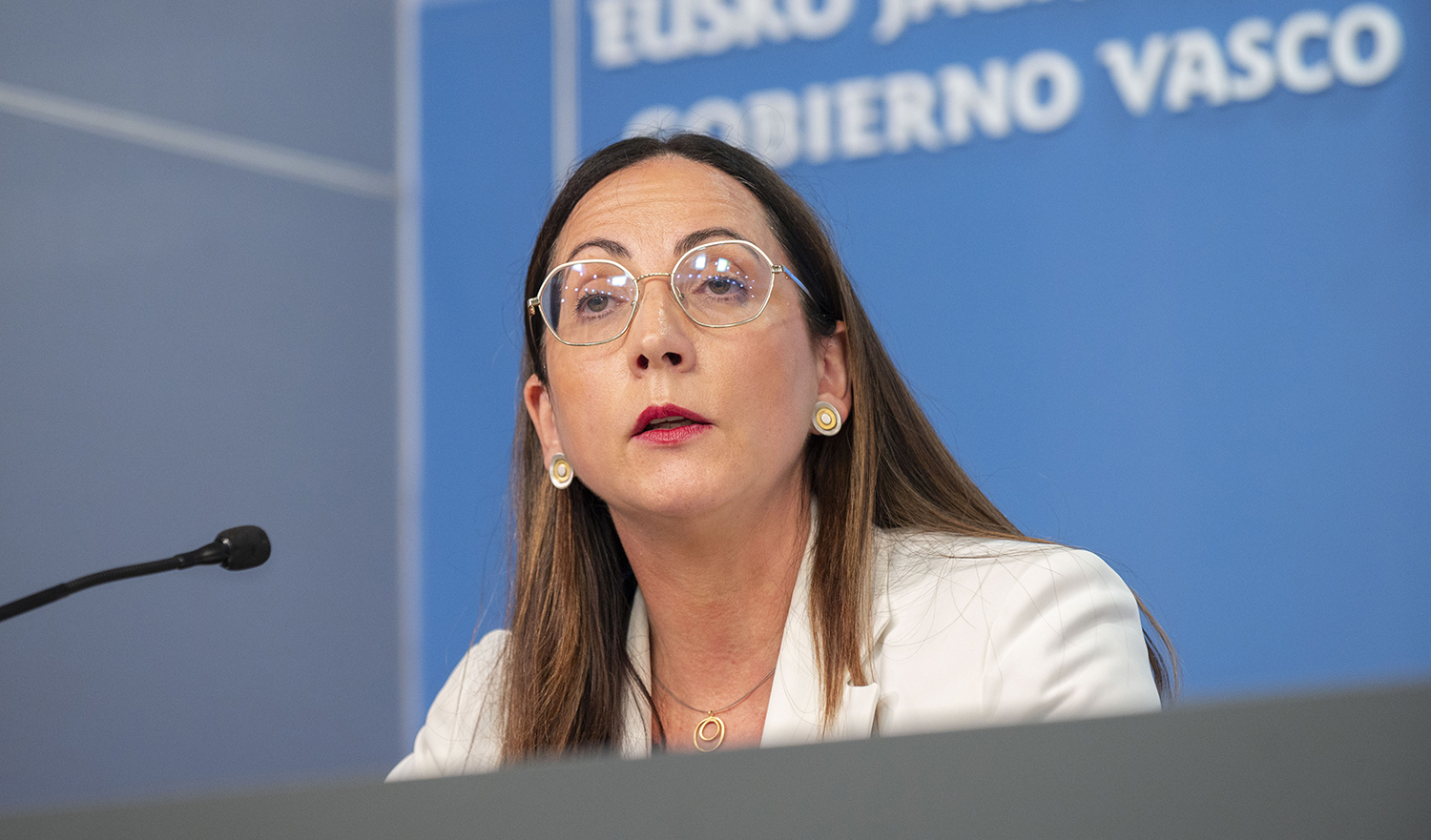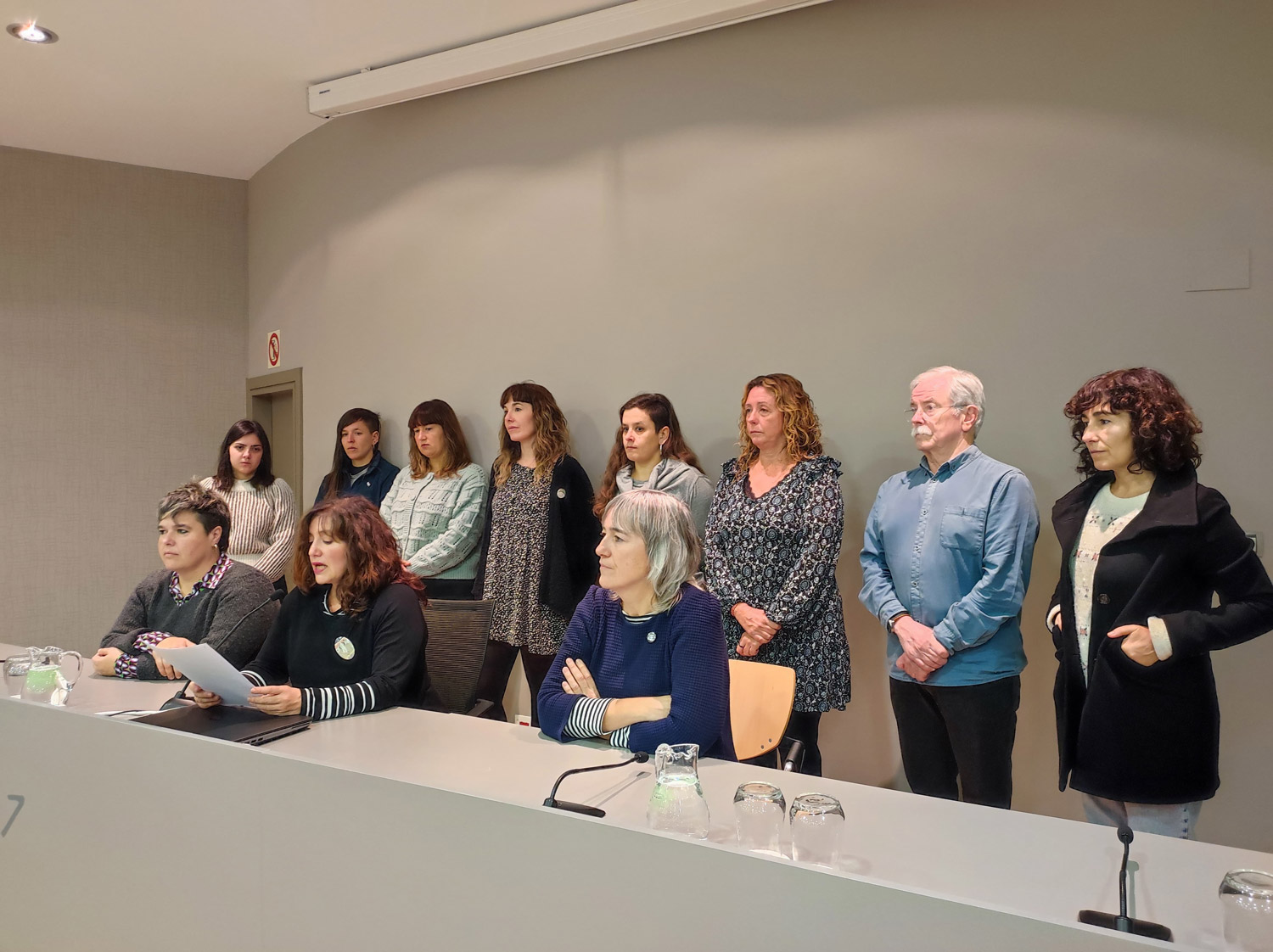Basque educational service, intermediate destination
The use of Euskera declines, cultural transmission is not guaranteed, segregation increases, state control, lack of autonomy, the weakening of the public school, the concertation of every private project, etc. And what do we do? Ask Madrid and Paris for a solution? Looking? Waiting for the Basque State? Don't think. It is necessary to take a qualitative step on the road to the Unified Basque Public School and to benefit the Public School and the Ikastolas.
The Basic Education Agreement was a milestone signed by dozens of Education referents 16 years ago. The main drivers were the pedagogical movement Hik Hasi and Joxe Mari Auzmendi, who has given so much to Basque education. We would like to recall that agreement, which seems to us to be very topical: “Public education will be an education that meets the development needs of peoples and all citizens, a quality service that guarantees all rights on equal opportunities.” The agreement therefore proclaimed that the public is a school that guarantees rights. The list of these rights is based on the United Nations Educational Pact, so it is universal human rights, which must be exercised locally. And what are the rights that a center should guarantee to be public? To guarantee the knowledge of the local language and culture, in our case the Basque language and culture; the right of all students to a quality education on equal opportunities: the document spoke of “co-education, inclusion, non-discrimination, participation, autonomy”.
"It is important that in the coming weeks and months the Education Act for the Autonomous Community of the Basque Country tries to collect a correct and precise idea of the Basque Education Service"
Here's the second key, which comes literally from the declaration of sixteen years ago: “The implementation of the Basque public educational service should specify and distribute the competences corresponding to the public authorities and the citizens (the educational community). Funding and control should be public. Therefore, the management of public education should be effective, transparent and with social continuity.” We have managed to remove the dust from the yellow leaves. Today, the Basque Government has proposed to the Basque Education Service that it has graduated from the Basic Education Agreement of 16 years ago. But the key is not in name, but in being. In our view, the Basque Education Service can be the foundation, the main pillar, the bridge and the boin of the new educational system. The Education Act, following the letter and spirit of the Educational Agreement, can have the potential to modify everything.
The CAPV Educational Agreement, signed in April by all the parties of the extreme right, considers that those centers that comply with the rights and obligations determined would be part of the Basque Education Service. Which and which? Euskaldunization, transmission of Basque culture, resistance to segregation, diversity, inclusion, gratuity, autonomy... That is, approximately, what is defined in the Educational Agreement that we signed sixteen years ago by individuals of education. Moreover, the centres that guarantee these rights and duties, as members of the Basque Education Service, would have sufficient funding to develop their educational project. Furthermore, the agreement requires the establishment of mechanisms for strict control of public money.
Why is the agreement reached by the political parties on this matter transformative? Because the centers that would become part of the service would compensate it with rights and duties and share the same space. From this new point of departure, the confluence of Public Centres, Ikastolas and other centres with a public vocation would be much easier than that needed to set up the Basque Public School. In other words, it would be the qualitative step of a process of transition, on the road to great convergence, the golden opportunity to extend the public sphere in a consensual way.
Unfortunately, in the draft law presented in October by the CAV Government, this hat appears without head, without foundation, frustrating its potential. That is why we consider it important that in the coming weeks and months the Education Act for the Autonomous Community of the Basque Country tries to take up the idea of the Basque Education Service. We are also aware that the law is not for the entire Basque Country and that, without sovereignty, it will not be possible to reach the goal. But as the road is on foot, put on the shoes and go ahead.
Blanka Martínez de San Vicente, Galder Sierra and Jon Urrusolo are promoters of the Basic Education Agreement.
Why concerted teaching?
The new Education Act adopted by the CAV against most public school officials aims to ensure that concerted education is free of charge through the financing of public authorities. The Spanish State has also announced a significant increase in public... [+]
Hunters, Marianistas, Niño Jesús, CEU San Pablo - Virgen Niña, Carmelitas, Presentation of Mary, Vera Cruz, NClic, San Viator, Escorapias, Scholapios, Bárdarias, Nazareth, Immaculate Conception, Hogar San José, Egibide. More Olabide by Eusko Ikastolen Batza. Finally, the... [+]
In response to the numerous statements of the new Education Advisor, Begoña Pedrosa, Law 17/2023 on Education will be implemented at the beginning of the course, approved in Parliament with the sole support of the PNV and the PSE. This implementation will entail the application... [+]
Who orders us ...?
The Basque Government has just been set up and the Minister for Education will be Begoña Pedrosa. Being a vice-counselor in the previous legislature and being one of the founders of the new Education Law passed last December, we are allowed to ask some... [+]
The recently passed Education Act is as bad as it is new. Throughout the processing process there has been a broad social sector against the spirit of this law, and this opposition has been greater in the face of its adoption. We want to make public the assessment and reflection... [+]
The new Education Act, which had to be born of consensus, was adopted in anger and disagreement. The lack of agreement is due to the public-private question and linguistic models. A lot of pity.
In this we follow the Spanish model, because in the CAPV we are not able to lay... [+]
Those of us who write and sign these lines are young people between 20 and 26 years old who have joined us in the context of the generational relay of Euskalgintza. In our case, we have decided to contribute to the struggle of the Basque Country in the Basque Country from... [+]
















